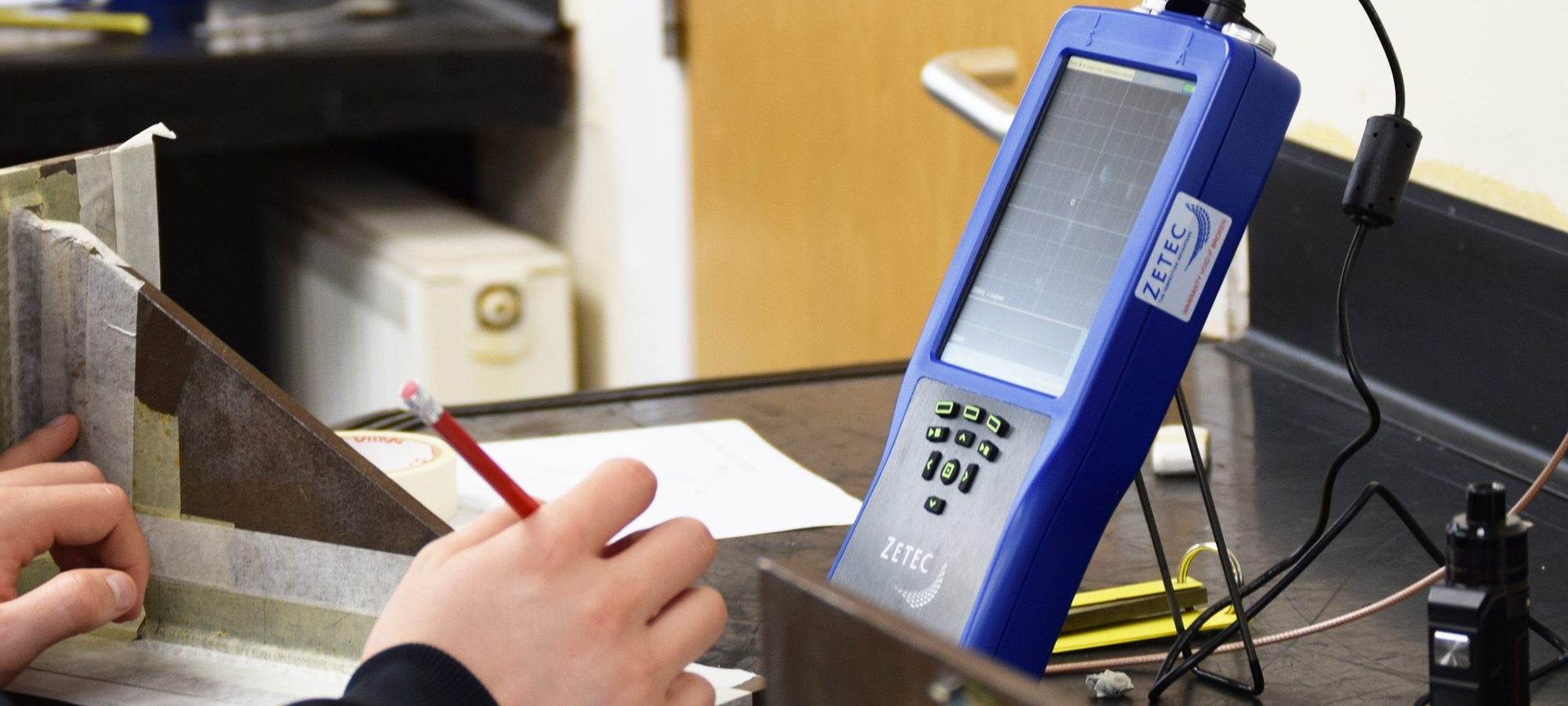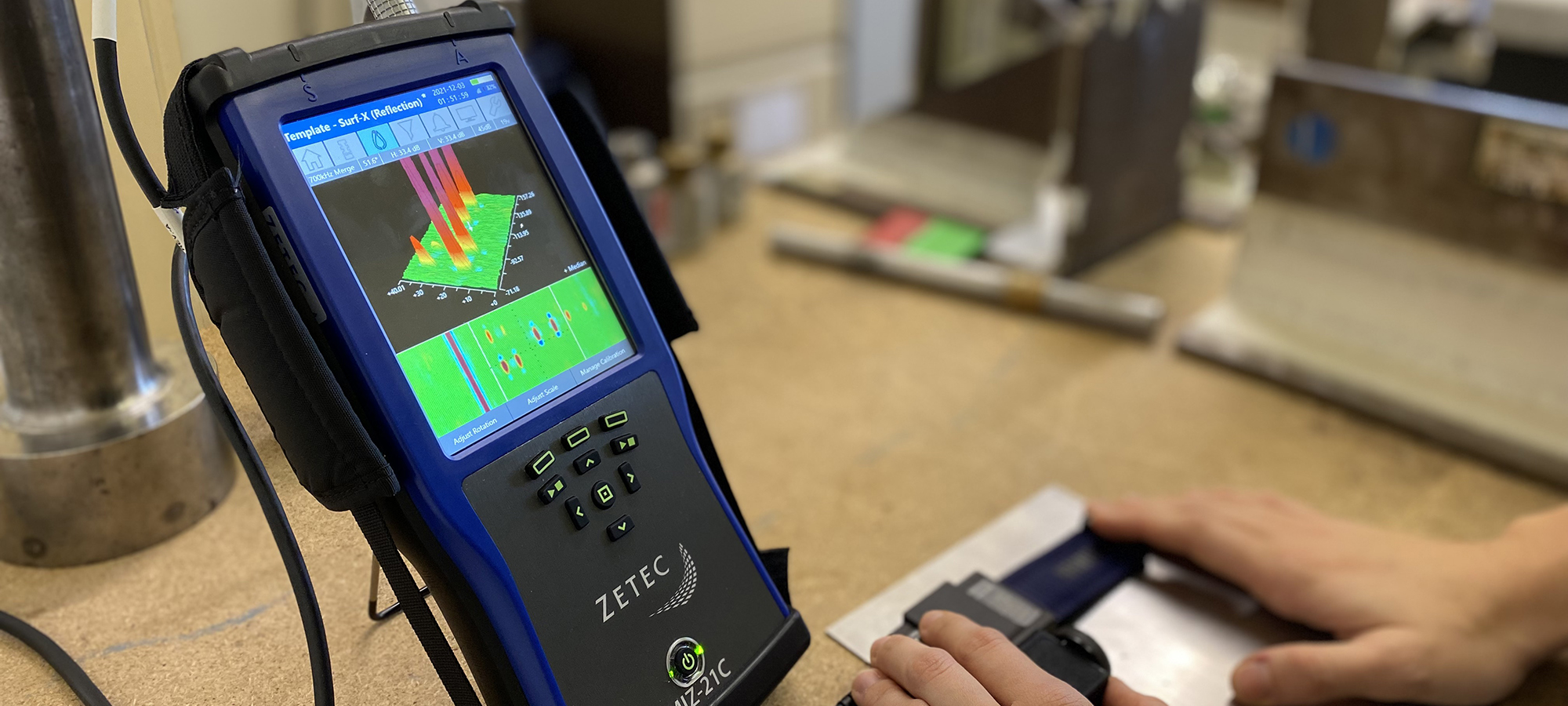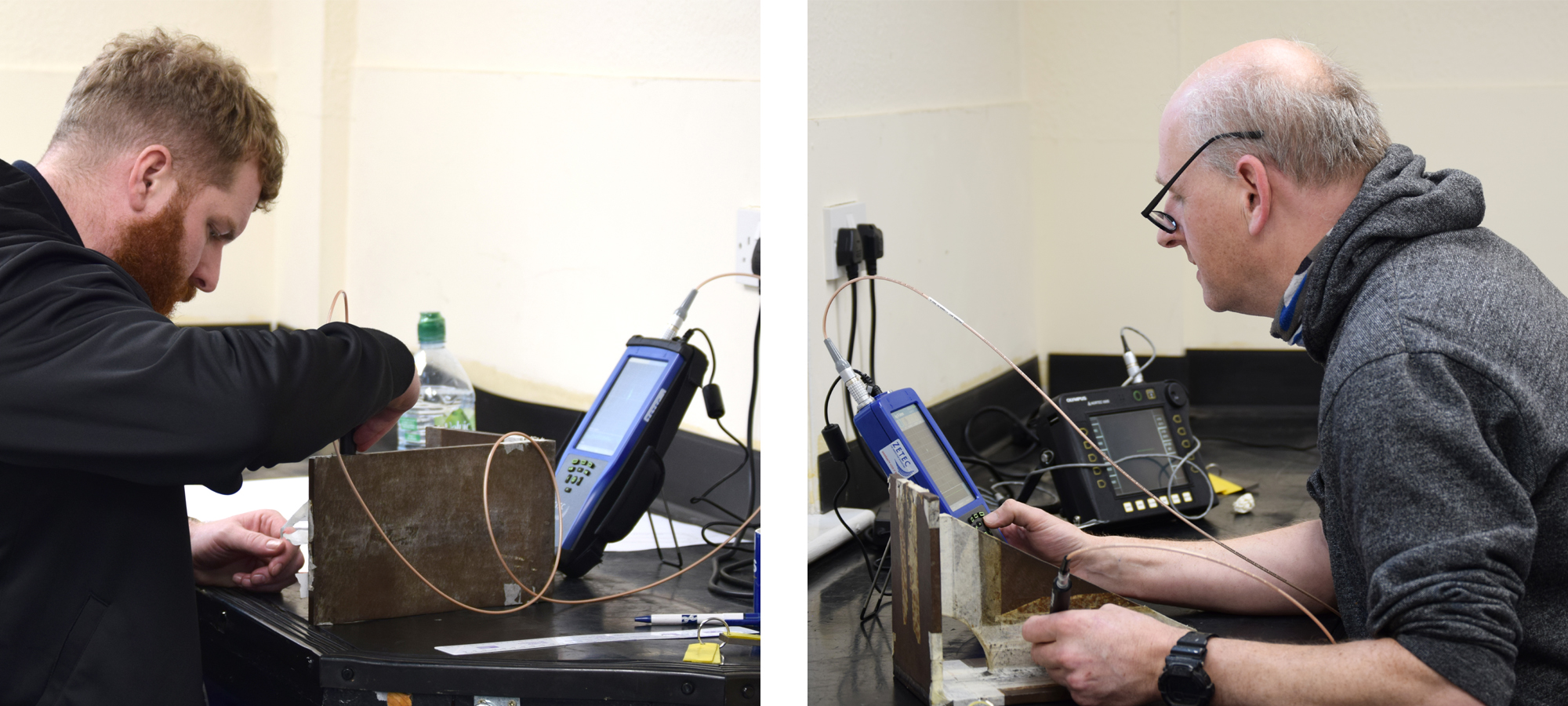
What is Eddy Current Testing?
Eddy current testing is a non-contact electromagnetic testing technique used for the inspection of conductive materials without the need to remove non-conductive coatings. An alternating current is passed through a coil in order to create an alternating magnetic field which is used to induce a localised current (eddy current) into the material under test. Discontinuities such as fatigue cracks will interrupt the flow of eddy currents and alter the terminal impedance of the test coil. The amplitude and phase of the received signal can be interpreted to ascertain the severity and exact location of any discontinuities found. Eddy current is routinely used to inspect a wide range of different materials and components across several fields of engineering including oil and gas, nuclear, power generation and aerospace.
What are the responsibilities of a individual who is certified to Eddy Current Level 2?
An individual certified to Eddy Current Level 2 has demonstrated competence to perform NDT according to Eddy Current Testing procedures. Within the scope of the competence defined on the certificate, Level 2 personnel may be authorised by the employer to:
- Select the Eddy Current technique for the test method to be used;
- Define the limitations of application of the testing method;
- Translate NDT codes, standards, specifications and procedures into NDT instructions adapted to the actual working conditions;
- Set up and verify equipment settings;
- Perform and supervise tests;
- Interpret and evaluate results according to applicable standards, codes, specifications or procedures;
- Prepare Eddy Current written instructions
- Carry out and supervise all tasks at or below level 2;
- Provide guidance for personnel at or below level 2, and
- Report the results of Eddy Current test

We’ve invested in new equipment for our Eddy Current courses. Read about it here.




